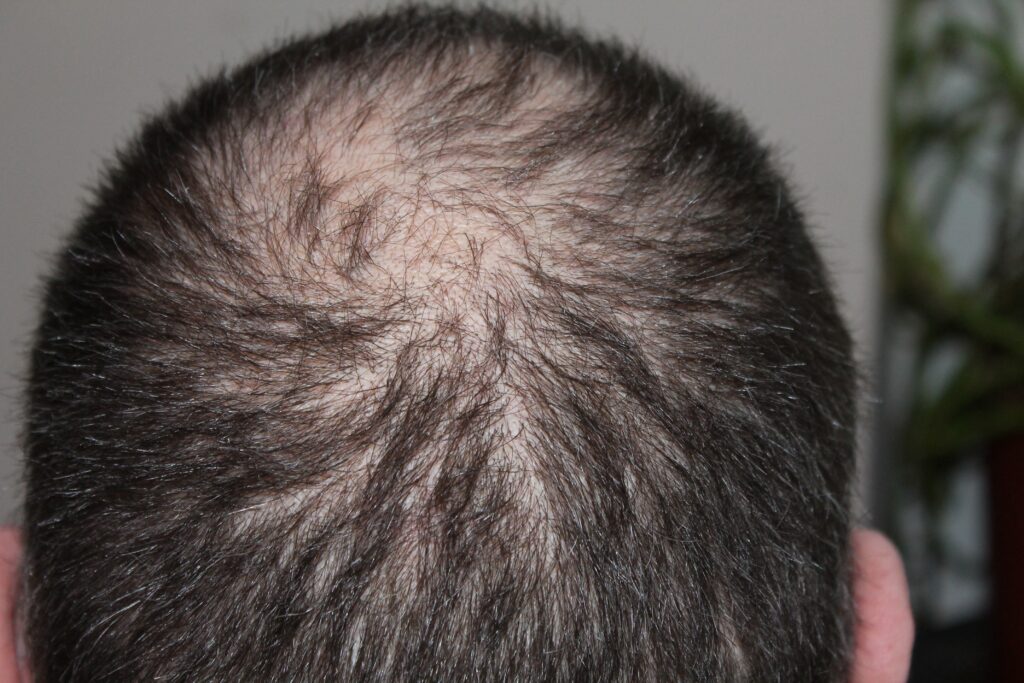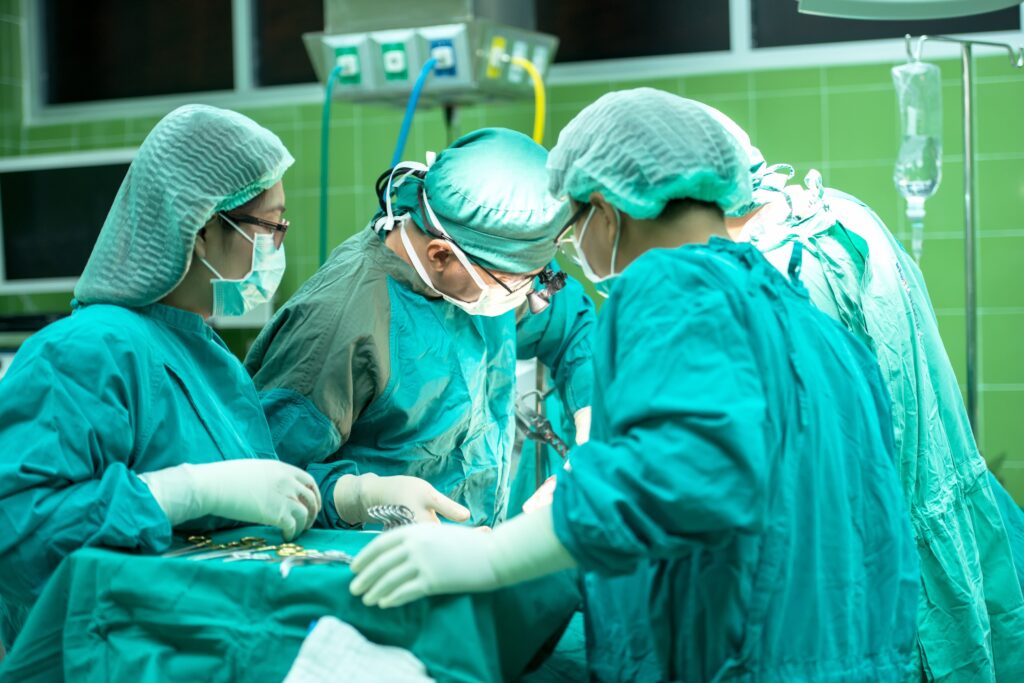Losing weight is often celebrated, and for good reason. It can dramatically improve your energy levels, confidence, and even reduce your risk of serious diseases. But what happens when your weight loss journey comes with an unexpected side effect—like clumps of hair clogging your shower drain?
While it’s common to associate weight loss with health gains, few people realize that hair loss can sometimes be an unwelcome sidekick. In this in-depth guide, we’ll break down why weight loss can lead to hair loss, how to recognize the signs, and most importantly—what you can do to stop it or reverse it.
The Surprising Connection Between Losing Weight and Losing Hair
Why This Happens More Than You Think
Let’s start by busting a myth: not all hair loss is genetic or age-related. One of the most overlooked causes is sudden or extreme weight loss. Whether you’re following a trendy diet, dealing with emotional stress from lifestyle changes, or undergoing bariatric surgery, your body might interpret these changes as a kind of shock.
Hair is non-essential for survival—unlike your brain, heart, or liver—so in times of stress or nutrient scarcity, your body reroutes energy and nutrients away from your scalp.
Who Is Most at Risk?
You’re more likely to notice hair loss during or after weight loss if:
- You lose more than 5-10% of your body weight rapidly (within a few months)
- You follow restrictive diets (especially those under 1200 calories/day)
- You already have underlying conditions like PCOS or thyroid imbalance
- You’ve undergone bariatric surgery
- You have a history of iron-deficiency anemia or eating disorders
Telogen Effluvium – The Scientific Name Behind Sudden Hair Shedding
What is Telogen Effluvium?
Hair doesn’t grow in one constant cycle—it goes through phases: growth (anagen), rest (telogen), and shedding (exogen). Normally, about 85-90% of your hair is in the growth phase. But during Telogen Effluvium (TE), a sudden shock (like rapid weight loss) pushes a large portion of your hair into the resting phase.
2 to 3 months later, the shedding begins. And trust us, it can be scary. You might find clumps of hair in your brush, pillow, or shower drain.
How Weight Loss Triggers Telogen Effluvium
The culprits? Nutrient deficiencies, sudden caloric restriction, and stress—all of which are common during aggressive weight loss.
Your body thinks it’s in danger and hits the emergency brakes on “non-essential functions” like hair growth.
How Long Does It Last and Will It Grow Back?
The good news is: TE is temporary.
Once your body rebalances—through better nutrition, stress management, or time—hair growth resumes. This usually takes 6 to 9 months, but some people may take up to a year.
Nutritional Deficiencies That Lead to Hair Loss
You are what you eat—and so is your hair. Without the right nutrients, your follicles literally starve.
Let’s dig into the most common nutrient deficiencies triggered by poor diets and their hair-damaging effects.
Iron – The Lifeline for Hair Follicles
Iron deficiency is one of the leading causes of hair thinning globally. It reduces oxygen supply to your follicles, essentially suffocating them. Common in menstruating women and those on plant-based diets, low iron levels (especially ferritin) can stop hair growth in its tracks.
Zinc – The Micronutrient Often Overlooked
Zinc helps in tissue repair and follicle function. It’s also involved in hormone balance. When you’re zinc deficient, not only can you lose hair, but you’re also more prone to dandruff, slow healing, and scalp irritation.
Biotin – The Beauty Vitamin
Biotin (Vitamin B7) is a rockstar in the beauty world, but it’s not just hype. It plays a critical role in keratin production—the protein your hair is made of. Deficiency is rare but possible with poor diet, certain medications, or absorption issues.
Protein – The Structural Block of Hair
Crash diets often slash protein intake, but guess what? Hair is made of keratin—a type of protein. When your body senses low protein, it prioritizes critical tissues (like muscles) over hair. The result? Thinning strands and slow regrowth.
Omega-3 Fatty Acids – For a Happy Scalp
These healthy fats keep your scalp nourished and inflammation-free. Low intake can lead to dry scalp, brittle hair, and even patchy hair loss.
Vitamin D – Not Just for Bones Anymore
Low vitamin D levels have been directly linked to hair loss, especially in women. It helps regulate the growth cycle and supports follicle health. Most people with TE also have low vitamin D levels.
The Perils of Crash Diets and Fad Weight Loss Plans
How Extreme Dieting Backfires on Your Hair
Many fad diets claim to melt fat “fast,” but they come at a steep cost. Keto, juice cleanses, intermittent fasting—all can lead to major nutrient gaps and hormonal chaos if not done properly.
The body perceives starvation or severe restriction as a stress signal, triggering cortisol spikes and hair shedding.
Low-Carb and Keto Diets: Are They Safe for Hair?
Low-carb diets often cut out grains and fruits, which are rich in biotin, fiber, and antioxidants. Without these, oxidative stress increases on the scalp, and hair starts to weaken.
If you’re on keto or low-carb, make sure you’re supplementing smartly and getting fats from sources like salmon, avocado, nuts, and seeds.
The Cortisol Connection – Stress and Hair Fall
Weight loss, especially under pressure, raises cortisol—the body’s primary stress hormone. High cortisol shortens the hair growth phase, leading to shedding.
If you’re skipping meals, overexercising, or obsessing over the scale—you’re stressing your system more than you think.
The article continues with:
- Hormonal Disruptions (PCOS, Thyroid, Insulin)
- Medical Conditions & Medications
- Is Hair Loss Permanent?
- Prevention Tips
- Hair-Friendly Diet & Supplements
- Stress Management
- Gentle Hair Care Habits
- When to See a Doctor
- Real Stories
- FAQs
- and a Conclusion
Hormonal Changes and Hair Loss During Weight Loss
The Delicate Dance of Hormones
Your hormones control nearly every system in your body—including hair growth. When you lose a significant amount of weight, especially quickly, your endocrine system (the hormone HQ) may shift gears in unpredictable ways.
Polycystic Ovary Syndrome (PCOS)
PCOS affects 1 in 10 women of reproductive age and is often linked with insulin resistance and androgen (male hormone) excess. While weight loss can help manage PCOS symptoms, the process itself can temporarily increase androgen levels, leading to female-pattern hair loss, particularly around the crown and part line.
Thyroid Disorders
Both hypothyroidism (underactive thyroid) and hyperthyroidism (overactive thyroid) can lead to diffuse hair thinning. The challenge? Thyroid function can shift during weight changes, and diets low in iodine or selenium may make it worse. Always monitor thyroid levels during weight loss—especially if you already have a diagnosis.
Insulin Resistance and Hair Growth
Insulin resistance causes inflammation and hormonal imbalances that can shrink hair follicles. Weight loss often improves insulin sensitivity, but if achieved through unsustainable crash diets, it may worsen imbalances before things get better.
Medical Conditions and Medications That Can Lead to Hair Loss
Bariatric Surgery and Hair Shedding
Patients undergoing procedures like gastric bypass or sleeve gastrectomy often face temporary hair loss within 3–6 months post-surgery. This is due to:
- Rapid weight loss
- Calorie restriction
- Nutrient malabsorption (especially iron, B12, protein, and zinc)
Hair typically grows back after a year with proper supplementation, but neglecting nutritional follow-up can cause long-term damage.
Anorexia, Bulimia, and Disordered Eating
Eating disorders place the body in a chronic state of nutrient deficiency and hormonal chaos. Hair loss here is not just cosmetic—it’s a red flag of severe internal imbalance. Recovery must address both the psychological and physical components of healing.
Weight Loss Medications
Some medications like orlistat, phentermine, or newer drugs like semaglutide (Ozempic, Wegovy) may indirectly cause hair shedding by impacting appetite, nutrient absorption, or causing rapid weight loss. If you’re on these medications and noticing hair loss, speak to your doctor about adjusting dosage or adding targeted supplements.
Is Hair Loss from Weight Loss Permanent?
In most cases—no, it’s not permanent. But here’s the catch:
If weight loss is extreme, prolonged, or combined with genetic predisposition (like androgenetic alopecia), permanent thinning may occur.
Key factors that determine reversibility:
- How fast and how much weight you lost
- Duration of nutrient deficiencies
- Hormonal status
- Genetics
Catching the issue early and course-correcting your approach can make all the difference.
How to Prevent Hair Loss While Losing Weight
Let’s switch gears and focus on what you can do to keep your locks strong while getting lean.
Adopt a Nutrient-Rich, Balanced Diet
Aim for whole, nutrient-dense foods that provide sustained energy and essential micronutrients.
Top Nutrients for Hair Growth
| Nutrient | Food Sources |
|---|---|
| Iron | Red meat, spinach, lentils |
| Zinc | Pumpkin seeds, chickpeas, cashews |
| Biotin | Eggs, almonds, sweet potatoes |
| Protein | Chicken, tofu, legumes, Greek yogurt |
| Omega-3 | Salmon, flaxseeds, walnuts |
| Vitamin D | Egg yolks, mushrooms, fortified foods, sunlight |
| Collagen | Bone broth, collagen supplements |
Avoid highly restrictive or single-food diets. Diversity in your meals = diversity in your micronutrients.
Avoid Rapid Weight Loss
Slow and Steady Wins the Race (and Keeps Your Hair)
Losing 1 to 2 pounds per week is ideal for fat loss, preserving muscle, and minimizing shock to your hair follicles.
Crash dieting leads to:
- Muscle loss
- Metabolic slowdown
- Telogen effluvium
- Mood swings
- Hormonal chaos
Instead, focus on sustainable habits: mindful eating, regular physical activity, adequate protein, and sleep.
Take Targeted Supplements (If Needed)
Important: Always consult a doctor before starting supplements. Testing levels through bloodwork helps avoid overdosing or imbalance.
Common Hair-Boosting Supplements:
- Biotin (5000–10000 mcg) – especially helpful for brittle nails/hair
- Iron with Vitamin C – for enhanced absorption
- Zinc (15–30 mg/day) – in moderation
- Vitamin D3 (1000–4000 IU/day) – if deficient
- B-Complex Vitamins – for overall energy and follicle health
- Collagen Peptides – supports keratin and scalp elasticity
Supplements work best when paired with a healthy diet, not as a substitute for it.
Manage Stress Effectively
Hair health isn’t just physical—it’s emotional and hormonal too.
Powerful Stress-Busters That Help Hair Regrow:
- Mindfulness meditation or prayer – lowers cortisol
- Regular exercise – boosts endorphins and circulation
- Journaling – clears mental clutter
- Deep breathing exercises – calms the nervous system
- Therapy or support groups – especially during major life transitions
Be Gentle With Your Hair
During or after a period of hair loss, the way you handle your hair matters more than ever.
Dos and Don’ts for Fragile Hair:
- Use sulfate-free shampoos
- Try microfiber towels or air-drying
- Apply lightweight oils or serums (argan, castor, or rosemary oil)
- Comb with a wide-tooth comb
- Sleep on silk pillowcases
- Avoid tight ponytails or buns
- Don’t over-brush wet hair
- Limit heat styling and chemical treatments
- Skip over-washing (2–3x/week is fine)
When to See a Doctor
Hair loss of more than 100 strands per day or visible thinning should not be ignored.
Ask your doctor or dermatologist to test for:
- Ferritin (iron stores)
- Vitamin D, B12, zinc levels
- Thyroid panel (TSH, T3, T4)
- Hormone levels (androgens, estrogen, insulin)
- Autoimmune or scalp disorders
The earlier you diagnose the root cause, the better the outcome.
Real-Life Success Stories
1. Sarah, 32 – The Keto Comeback
“I lost 35 pounds in 3 months on keto, but my hair started falling like crazy. I was devastated. After blood tests, I found out I was low in iron and zinc. I switched to a higher-protein, less-restrictive low-carb diet, took supplements, and practiced yoga. Six months later, my hair’s back—and so is my confidence.”
2. Ahmed, 41 – Post-Surgery Progress
“I had bariatric surgery last year. The weight dropped fast, but so did my hair. I followed my dietitian’s supplement plan religiously, added collagen to my morning coffee, and avoided stress. The hair loss slowed after 4 months, and now I’m seeing regrowth.”
Conclusion
Weight loss can be a powerful tool for transforming your health—but it needs to be done right. Sudden or extreme weight changes often come with a price, and your hair may be one of the first things to pay.
But don’t panic.
Hair loss during weight loss is usually temporary, and with the right strategies—nutrient-rich foods, smart supplementation, stress management, and gentle hair care—you can absolutely lose weight without losing your locks.
Just remember: healthy weight loss should benefit your entire body—not just the number on the scale. Your hair deserves the same care and nourishment as every other part of you.
FAQs
1. Can I prevent hair loss entirely during weight loss?
Not always, but you can significantly reduce the risk by losing weight gradually, eating a balanced diet, and managing stress.
2. How long does hair loss last after weight loss?
Typically, 3 to 6 months, but it may take up to a year for full recovery, depending on how quickly your body rebalances.
3. Do protein shakes help with hair growth?
Yes, high-quality protein shakes with added collagen or biotin can help, especially if you’re not meeting your daily protein needs from food.
4. Will my hair grow back thicker after I regain nutrients?
Your original density can return if the follicles weren’t permanently damaged. New growth may look finer at first, but it thickens with time and care.
5. Can exercise help with hair loss?
Absolutely. Regular physical activity improves circulation, reduces stress, and balances hormones—all of which benefit hair health.
link:https://www.drmalaymehta.com/blog/does-weight-loss-cause-hair-loss/
link:https://bidaayaat.com/comprehensive-guide-weight-loss-medications/



